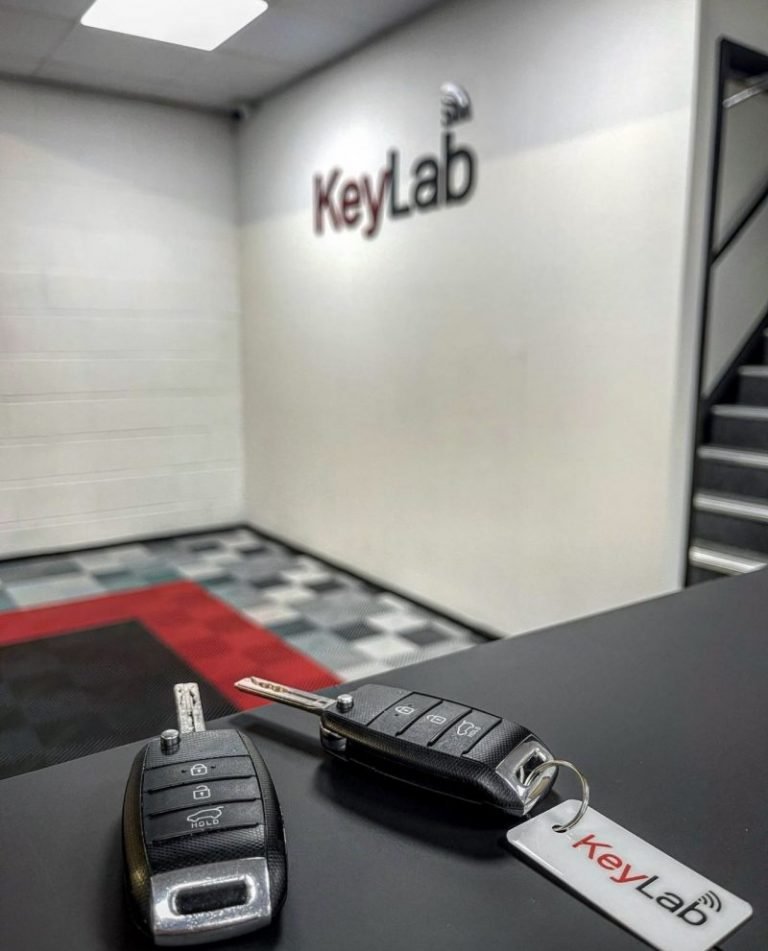Citroen Berlingo Key Fob Troubleshooting

Citroen's Berlingo Multispace occupies a utilitarian market in the people-carrier market. Its sliding rear door allows it to be easily inserted into bay parking spaces, and its sturdy cabin can withstand more abuse than the majority of upmarket competitors.
If your key fob was submerged in saltwater or soapy water the device may not function again, even after a new battery and the reprogramming. This is because the internal chip has been damaged due to exposure to water.
Water Damage
After getting your key fob back from whatever pool, puddle or washing machine it's been swimming in, get rid of the most water you can by shaking it. Then, place it with the button side facing up and let it drain for a couple of minutes while you wipe the inside using a cloth. This will prevent any condensation from causing damage to the electronic chip.
If the dashboard warning light that appears like a vehicle with an image of a key illuminates on your Mk 2 or Mk 3 Citroen Berlingo then it could indicate an immobilizer malfunction. This is a security component inside the vehicle that prevents thieves from stealing it. If this is the case, then you need to see a Citroen dealer or a qualified mechanic to address the problem.
A constant engine warning light may indicate that the electric power assisted steering system is failing. If this is the situation, you should stop the vehicle and check the temperature and pressure in the engine before restarting it. If the problem persists then you'll need to consult a Citroen dealer or trained mechanic to address the issue.
Dead Battery
The most frequent reason for the key fob not functioning within your Berlingo is a dead coin battery. The button cell inside the key can be replaced easily however it is essential to use the right size, voltage and type of battery. A non-compatible cell can damage the circuit. A dead battery for a coin-cell could also disable anti-theft. This is a safety feature that prevents the engine from starting without the physical key.
If the key fob doesn't respond to the lock button even after replacing the battery it could be because the receiver module is defective and isn't communicating with other modules in your vehicle. This can be diagnosed with an OBDII scan tool.
If the key fob is still not responding, try reprogramming. Follow the steps in your owner's manual for this procedure. Once the device has been reprogrammed, your device should function as expected.
Diagnosis of a Fault
The reliability of the Citroen Berlingo is generally highly praised by its owners. However, as with all vehicles there are some issues that arise. A dead key fob is among of the most frequent problems. Fortunately, this is easy to determine and is easily replaced in just a few minutes. Other problems include a worn-out button, water damage to the electronic chip, interference in the signal or a remote receiver module that is defective.
It is important to note that not all key fob batteries are made identical. Some batteries are made of inferior materials, and can cause damage to your remote key fob as well as other electronics in your vehicle. Use only batteries of the same kind and voltage as the original battery. Make sure that the new battery is inserted correctly. When inserting the battery into the slot, make sure the positive (+) face of the battery is facing upwards.
If you notice a warning light on your dashboard that looks like an exclamation mark, it indicates that the vehicle has discovered a problem with its electric power-assisted steering. If the warning light is illuminated while driving, it's advised to seek help from a trained mechanic or Citroen Berlingo (incl Multispace) dealership.
Radio Interference
If your key fob has stopped functioning at all it could be the result of radio interference. This issue could be caused by devices operating on the same frequency as a remote control. Certain wireless security systems, such as LED lights aftermarket, can interfere with the RF signal. Move citroen ds3 key fob The Keylab to another area if you have them in your home.
Environmental factors can also interfere with the key fob of cars in addition to other devices that operate on the same frequency. For instance, metal objects may interfere with the signal's strength. Rainy weather can also alter the antenna of the fob, resulting in a weaker radio signal. In some instances the key fob might not be able to receive radio signals, even if it is within range of the vehicle.
Examine the battery to confirm the health of your key fob. The battery should be in good shape and the contacts must not be corroded. A damaged or corroded contact can be one of the main reasons for the fob's key not responding to the radio signals. A drained battery may cause the fob to malfunction. If you replace the battery but the issue persists, it's a good indication that the antenna is defective. A professional locksmith will examine the key fob and make the required repairs.
